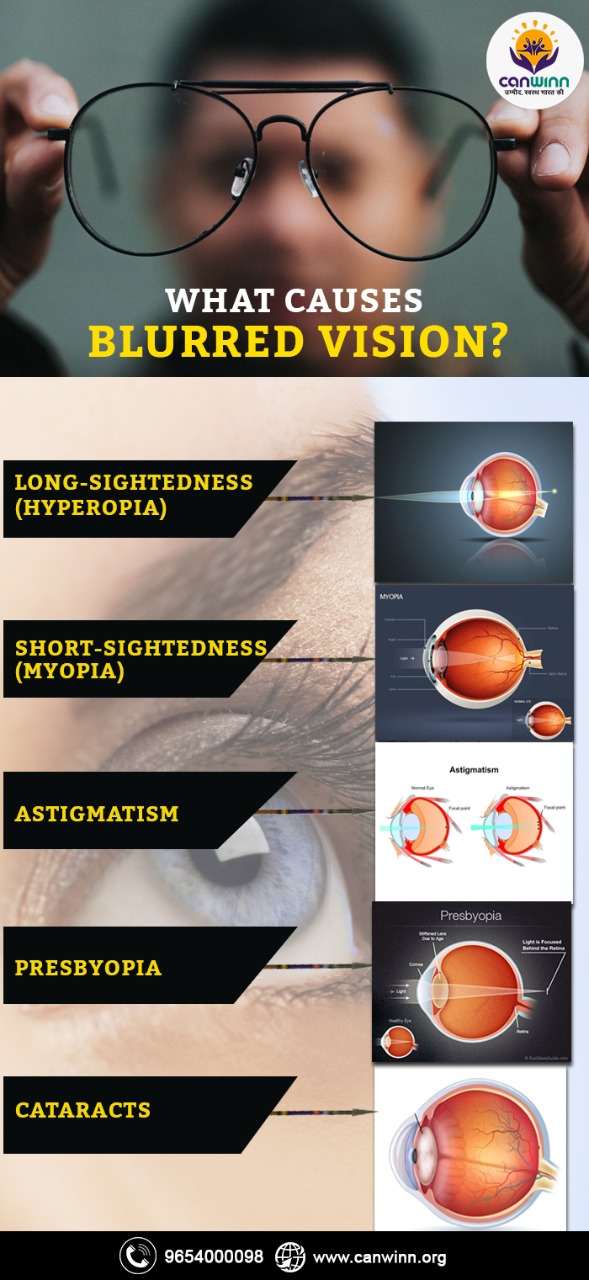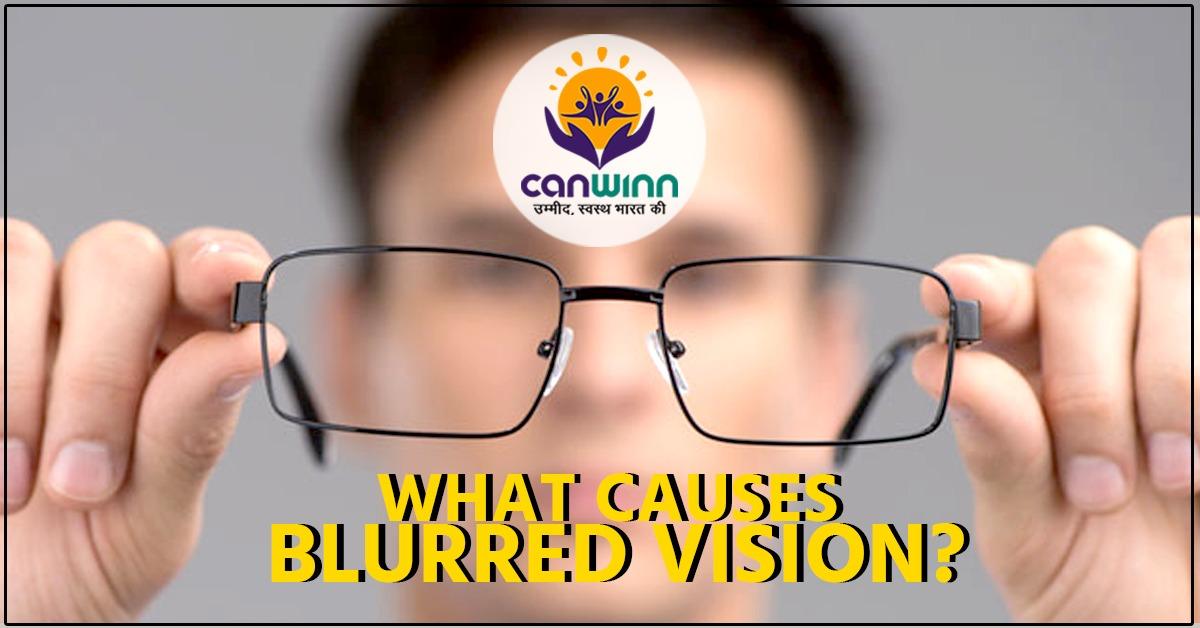Due to many health conditions, one might face the blurred vision. Imaginably, cloudy vision seems frustrating and overwhelming. The loss of normal vision can be temporary or permanent depending on the causes and severity of the condition.
While most of the people face blurry vision due to congenital disability, others might develop from other conditions. Canwinn Foundation will now discuss what causes blurred vision. By looking into the various reasons, you will understand why you are having sudden blurred vision and dizziness.
What Causes Blurred Vision?
Long-sightedness (Hyperopia): It is a common problem which involves the blurred appearance of the objects that are too close to your eyes. In other words, the eye cannot focus correctly, and as a result, your near vision gets blurred. In hyperopia, if the object if far from the eyes, you can clearly see it.
Treatment: Corrective lenses or LASIK eye surgery.
Short-sightedness (Myopia): The leading cause of myopia or nearsightedness is a refractive error in the eye. This condition can cause blurred vision in one eye or both of them. Unlike hyperopia, you cannot clearly see far away objects if you have myopia.
Treatment: Refractive surgery or eyeglasses.
Astigmatism: It is the condition in which a person gets blurry vision at all distances. The irregularly shaped cornea is the result of astigmatism. This kind of cornea prohibits light rays from coming to a single focus point on the retina to produce clear vision. It does not matter how far and nearer the object is.
Treatment: Contact lenses or LASIK surgery.
Presbyopia: This eye condition is connected with the age factor. With age, your vision towards nearby objects gets blurry. Generally, Presbyopia occurs after the age of forty. The cause of this condition is the eye loses its ability to focus on near objects. Why the eye drops its ability? It is because the lens inside the eye gets harder.
Treatment: Corrective eyeglasses (spectacle lenses) or contact lenses, Refractive surgery, or lens implants.
Cataracts: This eye condition involves cloudy vision, night halos or glares at night. If not treated on time, this eye condition can grow more cloudy. Even, cataracts can lead to obstructed vision to the point of blindness.
Treatment: Cataract surgery to replace cataracts with artificial lenses.
Eye Floaters: This is just a temporary condition of blurred vision occurs irregular spots or floaters that drift in your field of view. Eye floaters arise when the eye’s gel-like vitreous starts to liquefy with age. This condition causes microscopic bits of tissue within the vitreous to float freely inside the eye and cast shadows on the retina. It is a common issue that happens during the ageing process. However, you must consult a doctor if you encounter an unexpected shower of eye floaters.
Treatment: Surgery to remove the vitreous.
Dry Eye Syndrome: This syndrome can seriously affect eyes in many ways. Dry Eye Syndrome accommodate blurred and fluctuating vision. As it names suggest, is causes dry eyes and the other term used for this syndrome is keratoconjunctivitis sicca (KCS).
Treatment: Artificial tears, eyelid cleansing, Restasis, Lacrisert, Punctal plugs, warm compresses, etc.
Over-wearing Contact Lenses: Using contact lenses for a long term can be harmful. What happens is that, when you wear contact lenses more than recommended, proteins and other debris start building up on the lenses. Therefore, the chances of eye infections will be increased, and it will lead to the blurry vision.
Treatment: Prevent this condition and avoid using lenses for the long-term.
Diabetes: Unsurprisingly, diabetes is the common cause of blurry vision. Because the sugar level fluctuates in diabetes, it causes the eye condition, cataracts.
How to Cure Blurry Vision Naturally?
- Eye/Vision Exercises
- Rest, Repair & Recover
- Avoid Triggers
Stay connected with Canwinn Foundation for more updates about the disease and other health tips!



